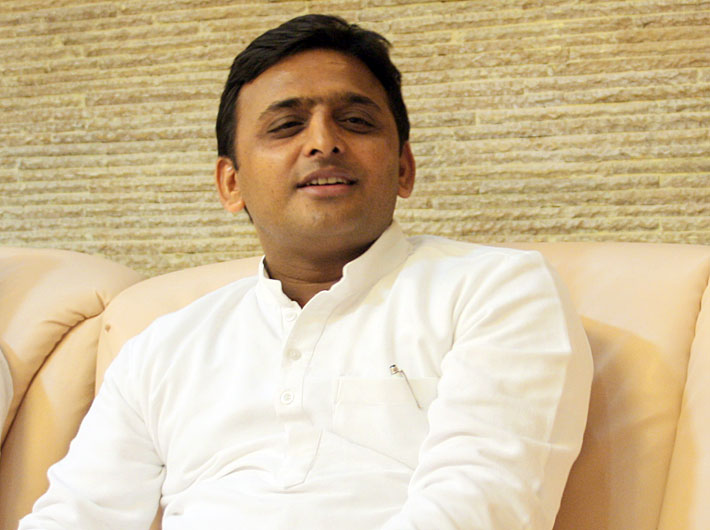Riots are a by-product of politics. The eruption of communal clashes all over Uttar Pradesh in recent times is a manifestation of a cynical politics which has taken hold of the country’s most populous state.
Slight sparks have been igniting tinderboxes while chief minister Akhilesh Yadav and his administration remain clueless. Contrast this with the scenario when his predecessor, Mayawati, enforced her writ and ensured peace in the wake of the contentious Allahabad high court verdict on title suits of Ram Janmabhoomi/Babri Masjid dispute in September 2010.
Mayawati’s message was loud and clear: she will brook no laxity on the part of the administration. Nothing happened in the state despite attempts to foment trouble. Perhaps Mayawati knew it better than the most in UP that in a communally surcharged atmosphere, her politics would be finished. However, she met her nemesis in unbridled corruption which she allowed to grow in the belief that it is a non-issue in electoral politics. But there is little doubt that she was singularly focused when it came to containing communalism.
Unlike Mayawati, Akhilesh’s inability to come to term with his own politics and set the agenda for governance is quite pronounced. Even a casual interaction with him at his Kalidas Marg residence in Lucknow would prove that he is a happy-go-lucky family man who takes governance as a trivial nuisance. Failure does not bother him and success does not entice him. Like scions of all political families, he considers perks of power as his entitlement.
But Akhilesh’s father and Samajwadi party chief Mulayam Singh Yadav is a seasoned politician with his ears firmly rooted to the ground. It would be naïve to believe that he is not capable of running his writ should he want to do so. Those who saw him in action in 1990 at the height of the Ayodhya agitation could verify that Mulayam was certainly made of sterner stuff when he dealt with the RSS-BJP-VHP combine. The mosque was saved in his tenure despite several attempts to vandalise it in October-November 1990.
In this setting, the silence of Mulayam is eloquent. It defines his politics which thrives on polarisation of the electorate on communal lines. In the process, he continues to consolidate the support base of the BJP, a party which is not shy of taking up the Hindu cause. In Mulayam’s political calculation, the revival of the BJP in UP would substantially marginalise his strongest foe – Mayawati and her Bahujan Samaj Party (BSP). As a staunch socialist who believes in identity politics, Mulayam is not averse to having a tacit understanding with the BJP to finish off the BSP politically.
This is why riots are so uniformly spread across the state. In some places, the state power is seen to be actively colluding with rioters to raise the temperature even in areas traditionally known to be peaceful. There is little doubt that Mulayam’s brinkmanship would come at much higher social and economic cost in UP.
With Akhilesh abjectly abdicating his constitutional responsibility, the communal situation is likely to get vitiated further. This is quite strange in view of the fact that he got an overwhelming mandate in the 2012 assembly elections on the promise of change. Those who voted him to power perceived him to be distinctly different from his father and his brand of politics. Two years after becoming the chief minister, Akhilesh seems to have inherited the worst of his father. On the other hand, Mulayam, who is caught in a time warp, would continue to push the state to precipice for an expedient politics which may ultimately recoil on him.

